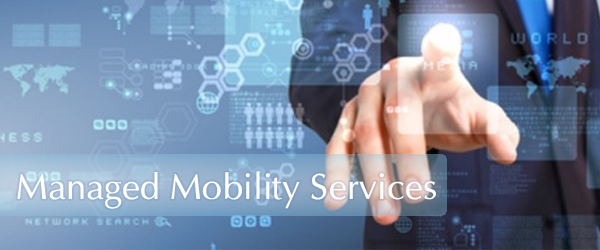

How does Managed Mobility Services benefit an Organisations Mobility Program
Managed Mobility Services (MMS) offer a range of monetary benefits and both tangible (hard) and intangible (soft) advantages to organisations that utilise them. Managed Mobility Services refer to outsourcing the management of an organisation’s mobile devices, applications, and related services to a third-party provider.
Here’s a breakdown of the monetary benefits, hard, and soft advantages of using Managed Mobility Services:
Monetary Benefits:
Cost Efficiency: MMS providers often have specialised tools, processes, and expertise that can help optimise mobile device management and reduce costs. This includes negotiating better rates with carriers, identifying and eliminating unnecessary services, and minimising overage charges.
Predictable Budgeting: With MMS, organisations can have more predictable monthly expenses due to consolidated billing, which includes services such as device procurement, data plans, device management software, and support. This helps in better financial planning and avoids unexpected spikes in spending.
Resource Savings: By outsourcing mobile device management tasks to MMS providers, organisations can free up their internal IT teams from routine administrative tasks. This enables them to focus on more strategic initiatives that directly contribute to the organisation’s goals.
Reduced Internal Resource Costs: Managing a fleet of mobile devices and the associated infrastructure requires dedicated personnel. MMS can eliminate or significantly reduce the need for in-house personnel, leading to savings in terms of salaries, benefits, training, and other overhead costs.
Hard Benefits:
Scalability: Managed Mobility Services can easily scale as an organisation grows. Whether you need to add new devices, integrate new software, or expand to different geographical locations, MMS providers can accommodate these changes efficiently.
Security Enhancement: MMS providers often offer advanced security features such as encryption, remote wiping of data, malware detection, and compliance enforcement. This helps protect sensitive company data and mitigate security risks.
Streamlined Support: MMS providers offer centralised support for troubleshooting and technical assistance. This reduces downtime and enhances productivity as employees can rely on efficient support services.
Enhanced Device Management: MMS platforms provide tools for tracking device usage, monitoring data consumption, and managing updates and configurations. This leads to better control over devices and improved management efficiency.
Soft Benefits:
Focus on Core Business: By outsourcing mobile device management, organisations can redirect their attention and resources towards core business activities that drive revenue and growth.
Employee Satisfaction: Employees benefit from seamless device setup, support, and consistent user experiences. This can lead to increased employee satisfaction and productivity.
Time Savings: MMS reduces the time spent by IT teams on routine device management tasks, allowing them to allocate more time to strategic initiatives and innovation.
Compliance and Governance: MMS can help organisations adhere to industry regulations and data privacy laws, avoiding potential legal issues and fines.
Technology Expertise: MMS providers often possess specialised knowledge about the latest trends, technologies, and best practices in mobile device management, ensuring that organisations stay up-to-date and competitive.
In conclusion, Managed Mobility Services offer a comprehensive set of monetary benefits, hard advantages, and soft benefits to organisations. By reducing costs, enhancing device management, and improving operational efficiency, MMS can be a strategic choice for organisations looking to optimise their mobile device ecosystem while focusing on their core objectives.










